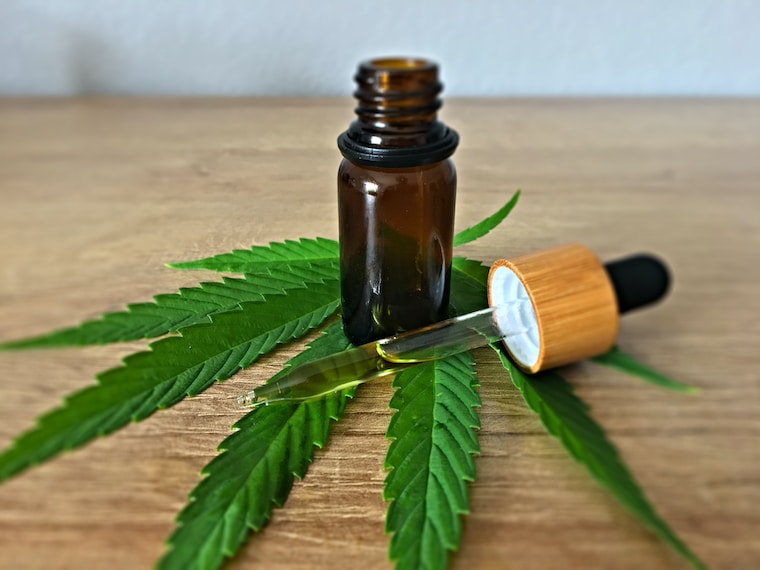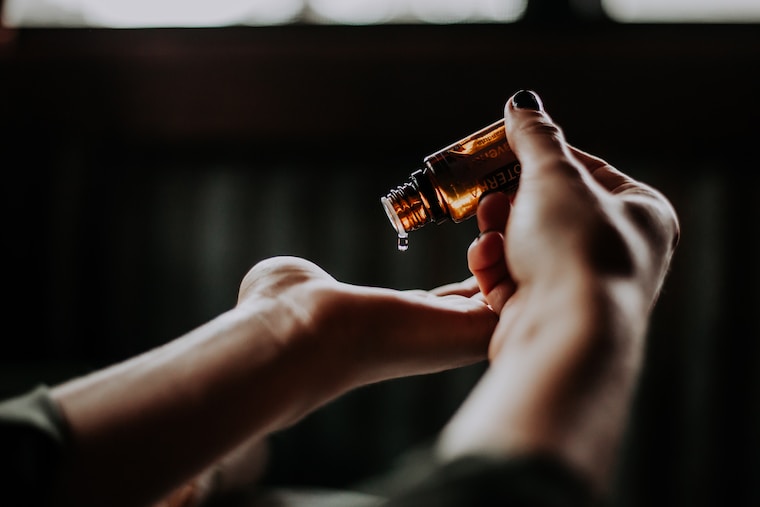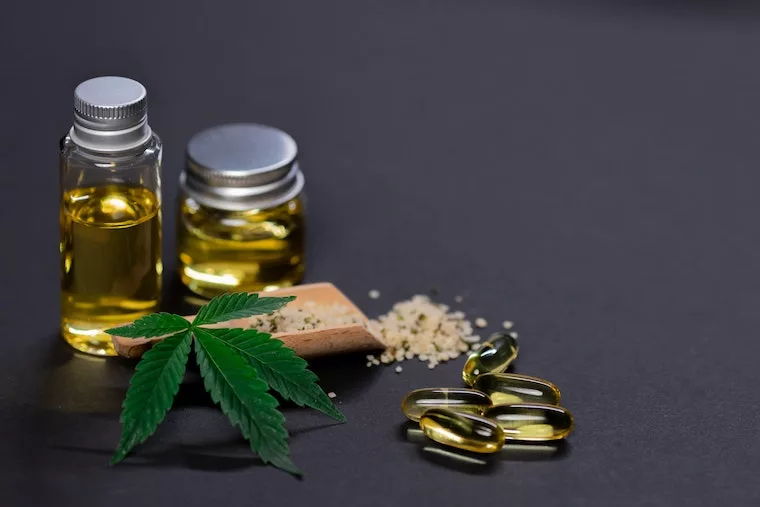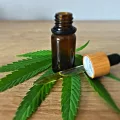CBD, or cannabidiol, has been making headlines in recent years as a miracle cure-all for ailments ranging from chronic pain to anxiety.
This compound is extracted from the hemp plant and has gained an incredible amount of popularity as more and more people turn to natural remedies for their health concerns.
But why all the fuss?
CBD is non-psychoactive, which means it won’t get you high like its cousin THC.
This makes it an attractive option for those who want to experience some of the therapeutic properties of cannabis without the mind-altering effects.
Additionally, research into CBD benefits has shown promising results for a variety of conditions.
However, despite its growing popularity, CBD remains shrouded in controversy due to its legal status.
While hemp-derived CBD is legal under federal law, many states have their own regulations regarding its production and sale.
This has led to confusion and even legal troubles for some users.
Jump to Section
The Basics: What is CBD?
CBD is one of over 100 cannabinoids found in the cannabis plant.
Unlike THC, which binds directly to cannabinoid receptors in the brain and central nervous system to produce euphoric effects, CBD does not produce any psychoactive effects.
Instead, CBD interacts with our bodies’ endocannabinoid system (ECS), which helps regulate functions such as mood, appetite, sleep, and pain sensation.
By modulating activity within this system through binding with receptors (primarily CB1R or CB2R) or indirectly impacting various other neurotransmitters involved in inflammation reduction or modulation like GABA or 5-HT3 receptors amongst others.
The Health Benefits: Pain Relief
One of the most commonly cited benefits of using CBD is pain relief; studies have shown that it can help with chronic pain caused by conditions such as arthritis or multiple sclerosis.
Unlike traditional painkillers, which can be addictive and come with potentially dangerous side effects, CBD has a very low risk of addiction and no harmful side effects.
CBD also has anti-inflammatory properties which can help reduce swelling and inflammation associated with many types of pain.
The Health Benefits: Anxiety and Depression
Another area where CBD is showing promise is in the treatment of anxiety and depression. Unlike prescription medications, which can cause a range of negative side effects including dependence, overdose, or withdrawal symptoms when stopped.
The research also suggests that CBD modulates serotonin levels by potentially increasing the availability of it in the synaptic gap between neurons leading to mood stabilization.
The Health Benefits: Neuroprotective Properties
CBD may offer neuroprotective properties against oxidative stress damage caused by free radicals circulating within the body.
This means it could potentially protect brain cells from damage or degeneration as seen in Alzheimer’s disease or multiple sclerosis.
Additionally, CBD’s anti-inflammatory properties may be beneficial for neuroinflammation reduction leading to potential therapeutic uses for headaches or migraines.

While more research is needed to fully understand all the benefits that CBD may offer, there is evidence to suggest it could become an important tool in our healthcare arsenal for treating a wide range of conditions ranging from chronic pain to anxiety and depression – all without producing any psychoactive effects.
However, given the legal gray area surrounding its production and sale in some areas around the world – it is recommended you do your due diligence before purchasing any products claiming to contain this compound.
The Basics of CBD
Define what CBD is and how it differs from THC
CBD or cannabidiol is a naturally occurring compound found in the cannabis plant.
It is one of over 100 cannabinoids present in the plant, but it doesn’t produce the psychoactive effects associated with THC (tetrahydrocannabinol), which is another well-known cannabinoid.
While THC gets you high, CBD doesn’t.
That’s because CBD doesn’t interact with the same receptors in your brain as THC does.
Instead, it interacts with other receptors throughout your body to produce a variety of beneficial effects.
| CBD (Cannabidiol) | THC (Tetrahydrocannabinol) | |
|---|---|---|
| Definition | A non-intoxicating cannabinoid found in cannabis plants. | The primary psychoactive compound in cannabis responsible for its intoxicating effects. |
| Origin | Derived from hemp and cannabis plants. | Derived mainly from cannabis plants. |
| Effects | Does not produce a “high” or intoxicating effects. | Produces psychoactive effects and alters perception, cognition, and mood. |
| Medical Benefits | Known for its potential therapeutic properties, such as pain relief, reducing inflammation, and alleviating anxiety and depression. | Commonly used for its analgesic (pain-relieving) properties, appetite stimulation, and for managing symptoms of conditions like nausea, glaucoma, and muscle spasticity. |
| Legal Status | Legalized in many countries and states due to its non-intoxicating nature and potential medical benefits. | Varies by jurisdiction; often regulated due to its psychoactive effects and potential for abuse. |
| Side Effects | Generally considered safe with minimal side effects, such as dry mouth, drowsiness, and changes in appetite. | Can cause short-term side effects like impaired coordination, increased heart rate, memory loss, anxiety, and paranoia. |
| Drug Testing | Typically does not show up on standard drug tests. | Can be detected in drug tests and may result in positive results. |
| Interaction with CB1 Receptors | Binds weakly or indirectly to CB1 receptors in the endocannabinoid system, affecting them in various ways. | Binds strongly to CB1 receptors, leading to the psychotropic effects associated with cannabis use. |
| Legality of Products | CBD products (with THC content less than 0.3% in the US) are widely available as oils, capsules, topicals, and edibles. | THC products are available in regions where cannabis is legal for medical or recreational use, but restrictions may apply. |
Explain how CBD interacts with the body’s endocannabinoid system
The endocannabinoid system (ECS) is a complex cell-signaling system that plays a role in regulating various functions throughout your body, such as sleep, appetite, pain sensation, and immune system response.
CBD interacts with this system by binding to two types of receptors – CB1 and CB2 – found mainly in the brain and immune system cells respectively.
By doing so, it can modulate various physiological processes regulated by the ECS.
One way that CBD stimulates the ECS is by inhibiting an enzyme called FAAH that breaks down anandamide – one of your body’s own endocannabinoids that helps regulate mood and pain perception.
By slowing down its breakdown, more anandamide remains active in your body to exert its beneficial effects.
Another way CBD influences ECS function is by activating TRPV1 receptors involved in pain perception and inflammation response.
This activation leads to increased production of natural opioids such as beta-endorphins that help relieve pain naturally without producing any harmful side effects.
Overall, understanding these basics about CBD sets us up for discussing all its wonderful benefits.
Unlike THC which impairs functionality of users causing intoxication whether wanted or unwanted at times, CBD is a non-psychoactive compound making it safe for use.
The endocannabinoid system allows this compound to interact with the body in many different ways making it an important medical tool against various conditions and illnesses.
The Health Benefits of CBD
Pain Relief
CBD has been shown to have powerful pain relief properties.
One of the biggest benefits of using CBD for pain relief is that it does not come with the negative side effects that are often associated with traditional pain medications, such as opioids or NSAIDs.

Studies have found that CBD can reduce inflammation and alleviate chronic pain by interacting with receptors in the body’s endocannabinoid system.
It’s a natural alternative that allows those suffering from chronic pain to experience relief without risking addiction or other harmful side effects.
Anxiety and Depression
CBD has also been shown to be effective in reducing symptoms of anxiety and depression by regulating serotonin levels in the brain.
Serotonin is a neurotransmitter that plays a key role in mood regulation, and low levels of serotonin have been linked to depression and anxiety disorders.
By regulating serotonin levels, CBD can help improve mood, reduce symptoms of anxiety and depression, and promote an overall sense of well-being.
This makes it an appealing option for those who prefer natural alternatives to traditional antidepressants.
Neuroprotective Properties
Recent studies have found evidence that CBD may offer neuroprotective benefits as well, particularly when it comes to conditions like Alzheimer’s disease or multiple sclerosis.
In fact, some researchers believe that CBD could be a potential treatment option for these conditions due to its ability to protect against neurological damage caused by inflammation or oxidative stress.
While more research is needed in this area, the potential for using CBD as a neuroprotective agent is promising.
There are numerous health benefits associated with using CBD oil. From reducing chronic pain without harmful side effects to improving mood disorders like anxiety and depression by regulating serotonin levels, there are many compelling reasons why people are turning towards this natural alternative over traditional prescription medications with dangerous side effects.
It’s important to note that while CBD oil has been shown to be effective in treating a variety of conditions, it’s always important to speak with your doctor before starting any new treatment regimen.
With the right dosage and guidance from a healthcare professional, CBD oil could be an effective and safe way to improve your quality of life.
The Lesser-Known Benefits of CBD
Skincare: The Secret Weapon Against Acne and Inflammation
CBD has been known to have a powerful impact on our skin.
Topical application of CBD can help reduce inflammation, soothe sensitive skin, and even treat acne.
How is this possible? CBD has anti-inflammatory properties that can help calm down angry skin, reducing redness and puffiness.

It also has antibacterial properties that can help combat the bacteria that causes acne in the first place.
Moreover, CBD is rich in antioxidants, which can prevent signs of aging caused by free radicals.
It’s no wonder why so many companies incorporate CBD into their skincare products!
So if you’re struggling with inflamed or acne-prone skin, give a CBD-infused cream or serum a try.
Sleep Aid: Sweet Dreams Are Made of This
Sleep is arguably one of the most important things we do for our health.
Unfortunately, many people struggle with insomnia or other sleep disorders that prevent them from getting the rest they need.
This is where CBD comes in as an aid for sleep.
CBD has been shown to have sedative effects at higher doses; however, taking a small dose before bed may also promote relaxation and improve sleep quality without causing drowsiness during daytime activities.
Furthermore, since anxiety and stress are common causes of sleep disturbances, taking CBD may also help relieve these symptoms and thus improve overall sleep quality.
If you’re someone who struggles with getting enough quality rest or suffers from chronic insomnia, giving a small dose of CBD a try may be worth your while!
Conclusion: The Versatility of CBD
While there are still many unknowns about how exactly Cannabidiol works within our bodies and what all its benefits might be – it’s clear that it possesses undeniable potential for improving our health and wellbeing in a variety of ways.
From reducing chronic pain, to anxiety relief, to improving sleep and even our skin – the versatility of CBD is hard to ignore.
The anecdotal and scientific evidence that supports these claims are both strong enough that it’s no wonder why an increasing number of people are incorporating it into their daily routines.
As with any substance, it’s always important to do your research before trying something new.
And while there may still be some confusion surrounding the legality and regulation of CBD products, there’s no doubt that if used responsibly – they can offer us a lot of health benefits we might not be getting otherwise.
How to Incorporate CBD into Your Daily Routine
Dosage Recommendations
One of the most frequently asked questions about CBD is how much to take. Unfortunately, there is no one-size-fits-all answer.
The right amount for you will depend on several factors, including your weight, age, and desired effect.
A good rule of thumb is to start with a small dose and increase gradually until you achieve the desired effect.
For example, if you are taking CBD for pain relief, start with a low dose and gradually increase until your pain subsides.
It’s important to remember that everyone’s body reacts differently to CBD, so it may take some trial and error to find the right dosage for you.
Some people may find that they need a higher dose than others due to their body’s tolerance level.
Different Forms of Consumption
There are several ways to consume or apply CBD depending on personal preference and desired effects. Here are some popular options:
- Tinctures: These are liquid extracts that come in a dropper bottle. They can be taken sublingually (under the tongue) or added to food or drinks. Tinctures come in varying strengths, so it’s essential to read the label carefully before use.
- Edibles: These are foods infused with CBD oil. They come in various forms such as gummies, chocolate bars, and energy bars. Edibles offer an easy way of incorporating CBD into your daily routine without having to measure doses.
- Topicals: Topicals are balms or creams infused with CBD oil. They can be applied directly onto the skin where needed for localized relief from soreness and inflammation. Topicals offer a convenient way of using CBD without ingesting it orally.
- Vape Pens: These devices heat up CBD oil into vapor for inhalation. Vape pens offer a fast-acting method of using CBD, but they come with some risks associated with inhalation. Ultimately, it’s up to you to choose the form of CBD consumption that works best for your lifestyle and preferences.
It’s essential to read the labels carefully before use and start with a low dosage before gradually increasing it.
Also, remember that all CBD products are not created equal, so do your research and buy from reputable brands.
The Benefits of Using CBD: A Summary
After researching and writing about the benefits of CBD, it is clear that this compound has the potential to provide relief for a variety of ailments.
From chronic pain to anxiety and depression, CBD can help people alleviate their symptoms without the negative side effects often associated with traditional medications.
Additionally, lesser-known benefits such as improving skin health and aiding with sleep disorders make CBD an attractive option for those seeking alternative forms of treatment.
Do Your Research Before Incorporating CBD into Your Daily Routine
While it is undeniable that CBD has many potential benefits, it is important to remember that everyone’s body reacts differently to substances.
Before incorporating CBD into your daily routine, it is crucial to do your own research and consult with a healthcare professional to determine if this is the right option for you.
Additionally, it is important to purchase high-quality CBD products from reputable sources.
The FDA does not currently regulate CBD products, so consumers must be diligent in selecting safe and reliable options.
CBD as Part of a Holistic Health Plan
While using CBD alone may provide some relief for certain ailments, incorporating it as part of a holistic health plan may yield even greater results.
Eating a healthy diet full of fruits and vegetables, exercising regularly, and getting enough sleep are all essential components of overall wellness. Combining these practices with the potential benefits of using CBD can lead to improved physical and mental health.
The Future Potential of CBD Research
As research on CBD continues to grow, we can only expect additional discoveries about its potential uses and benefits.
With so much still unknown about this compound, there may be even more promising applications that have yet to be discovered.
CBD has the potential to provide relief for a variety of ailments and improve overall wellness when used as part of a holistic health plan.
It is important to do your own research and consult with a healthcare professional before incorporating CBD into your daily routine.
While the future potential of CBD research is exciting, it is crucial to purchase high-quality products from reputable sources in order to ensure safety and efficacy.
With this information in mind, those seeking alternative forms of treatment should consider giving CBD a try.
It may just be the solution they have been searching for.
Final Thoughts on the Benefits of Using CBD
CBD has numerous potential benefits for those seeking alternative ways of managing chronic pain, anxiety, depression, sleep disorders and more.
While there is still much research needed into its long-term effects on human health; numerous studies have shown that CBD may help alleviate several conditions by interacting with our Endocannabinoid system.
There are many ways to incorporate CBD into your daily routine based on personal preference and desired effects.
Whether it be tinctures or edibles for ingestion or topicals applied directly onto your skin or vape pens used for inhalation; there is always an option in line with individual needs.
Whether you are looking for relief from chronic pain or anxiety or just want to try a new wellness trend; CBD may be worth considering.
However; as with any supplement or medication; it’s important to consult with a healthcare professional before incorporating CBD into your daily routine especially if you take other medications that could interact negatively.
FAQ
What is CBD?
CBD stands for cannabidiol, which is a naturally occurring compound found in the cannabis plant.
It is one of many cannabinoids, but unlike THC (tetrahydrocannabinol), CBD does not produce psychoactive effects or a “high.”
How does CBD work in the body?
CBD interacts with the body’s endocannabinoid system (ECS), which is involved in regulating various physiological processes.
It influences receptors in the ECS, helping to maintain balance and promote overall well-being.
What are the potential benefits of using CBD?
CBD has been studied for its potential therapeutic benefits. While research is ongoing, some of the reported benefits include:
- Pain relief: CBD may help alleviate chronic pain and reduce inflammation.
- Anxiety and stress reduction: CBD has shown promise in reducing anxiety and promoting relaxation.
- Improved sleep: CBD may aid in improving sleep quality and reducing insomnia.
- Neuroprotective properties: CBD may have neuroprotective effects, potentially benefiting conditions such as epilepsy and multiple sclerosis.
- Anti-inflammatory effects: CBD may help reduce inflammation in the body, which could be beneficial for various inflammatory conditions.
- Potential anti-cancer properties: Some studies suggest that CBD may have anti-tumor effects, although further research is needed.
Is CBD safe to use?
CBD is generally considered safe for most people.
However, it can interact with certain medications, so it is important to consult with a healthcare professional before using CBD, especially if you are taking any medications or have underlying medical conditions.
Can CBD cause any side effects?
While CBD is well-tolerated by most individuals, it can cause some side effects in certain cases. These may include dry mouth, diarrhea, drowsiness, and changes in appetite.
It is important to start with a low dose and gradually increase if needed, to minimize the risk of side effects.
Is CBD legal?
The legality of CBD varies by country and jurisdiction.
In many places, CBD products derived from hemp containing less than 0.3% THC are legal, while CBD derived from marijuana may have more restrictions.
It is crucial to check the specific laws and regulations in your location before purchasing or using CBD products.
How should I choose a CBD product?
When choosing a CBD product, it is important to consider factors such as the product’s quality, potency, ingredients, and third-party testing.
Look for reputable brands that provide transparent information about their sourcing, extraction methods, and lab testing results.
It is also recommended to start with a low potency and gradually increase if needed.
Can I overdose on CBD?
It is highly unlikely to overdose on CBD. However, taking extremely high doses may lead to adverse effects.
It is advisable to follow the recommended dosage guidelines provided by the product manufacturer or consult with a healthcare professional for personalized guidance.
Can I use CBD while pregnant or breastfeeding?
The use of CBD during pregnancy or breastfeeding is not well-studied, and it is generally recommended to avoid using CBD during these periods.
It is essential to consult with a healthcare professional for personalized advice and guidance.
Can CBD make me fail a drug test?
While CBD itself is unlikely to result in a positive drug test, some CBD products may contain trace amounts of THC, which could potentially trigger a positive result.
If you are subject to drug testing, it is advisable to use CBD products that are THC-free or have undetectable levels of THC.
Can I give CBD to my pet?
CBD products specifically formulated for pets are available in the market. However, it is crucial to consult with a veterinarian before giving CBD to your pet.
They can provide guidance on appropriate dosage, potential interactions with medications, and whether CBD is suitable for your pet’s specific needs.
How long does it take for CBD to take effect?
The time it takes for CBD to take effect can vary depending on several factors, including the individual’s metabolism, the method of consumption, and the dosage.
Generally, CBD can take anywhere from a few minutes to a couple of hours to show its effects.
Sublingual tinctures and vaporization tend to have quicker onset times, while edibles and capsules may take longer to take effect.
Can I use CBD with other medications?
CBD has the potential to interact with certain medications.
It can inhibit the activity of certain enzymes responsible for metabolizing drugs in the liver, which may affect their effectiveness.
It is crucial to consult with a healthcare professional or pharmacist to check for potential drug interactions before combining CBD with other medications.
Is CBD addictive?
CBD is considered non-addictive and does not produce the same psychoactive effects as THC. It does not cause the euphoric sensation or the craving commonly associated with addiction.
However, it is essential to use CBD responsibly and in moderation.
Can I drive or operate machinery after using CBD?
CBD does not typically impair cognitive function or motor skills. However, individual reactions may vary, especially if CBD products contain trace amounts of THC.
It is advisable to understand how CBD affects you personally before driving or operating machinery, and to adhere to any local laws or regulations regarding CBD use.
Can CBD cure diseases or conditions?
CBD is not a cure for diseases or conditions. While it may provide potential therapeutic benefits, it should not be considered a replacement for medical treatment.
It is important to consult with healthcare professionals for proper diagnosis, treatment, and guidance.
Is there a difference between CBD isolate and full-spectrum CBD?
Yes, there is a difference between CBD isolate and full-spectrum CBD.
CBD isolate is pure CBD, devoid of other cannabinoids, terpenes, and compounds found in the cannabis plant.
Full-spectrum CBD contains CBD along with other cannabinoids, terpenes, and trace amounts of THC.
Some individuals believe that full-spectrum CBD may offer enhanced benefits due to the synergistic effects of all the compounds working together, known as the entourage effect.
Can I travel with CBD?
Traveling with CBD can be subject to regulations and restrictions, as it varies by country and even within different states or regions.
Some countries or states may allow CBD products with certain limitations, while others may have stricter regulations.
It is crucial to research and comply with the specific laws and regulations of the destination before traveling with CBD.
Are there age restrictions for using CBD?
Age restrictions for CBD use may vary by jurisdiction. In many places, the legal age for purchasing and using CBD products is 18 or 21 years old.
It is important to comply with the age restrictions and regulations in your area.
Can I use CBD if I’m pregnant or breastfeeding?
The use of CBD during pregnancy or breastfeeding is not well-studied, and it is generally recommended to avoid using CBD during these periods.
It is essential to consult with a healthcare professional for personalized advice and guidance.
Remember, while CBD shows promise in various areas, more research is needed to fully understand its potential benefits and long-term effects.
It is always recommended to consult with healthcare professionals before starting any new supplement or treatment regimen.
Source: https://en.wikipedia.org/wiki/Cannabidiol
I am a CBD enthusiast and creator of DJ Hemp who has made it my mission to enlighten the world about the cannabis industry through thought-provoking literary works.
I have successfully fostered an open-minded, inquisitive community that is eager to learn more about the potential benefits of CBD.
Contact me at [email protected] for assistance.





